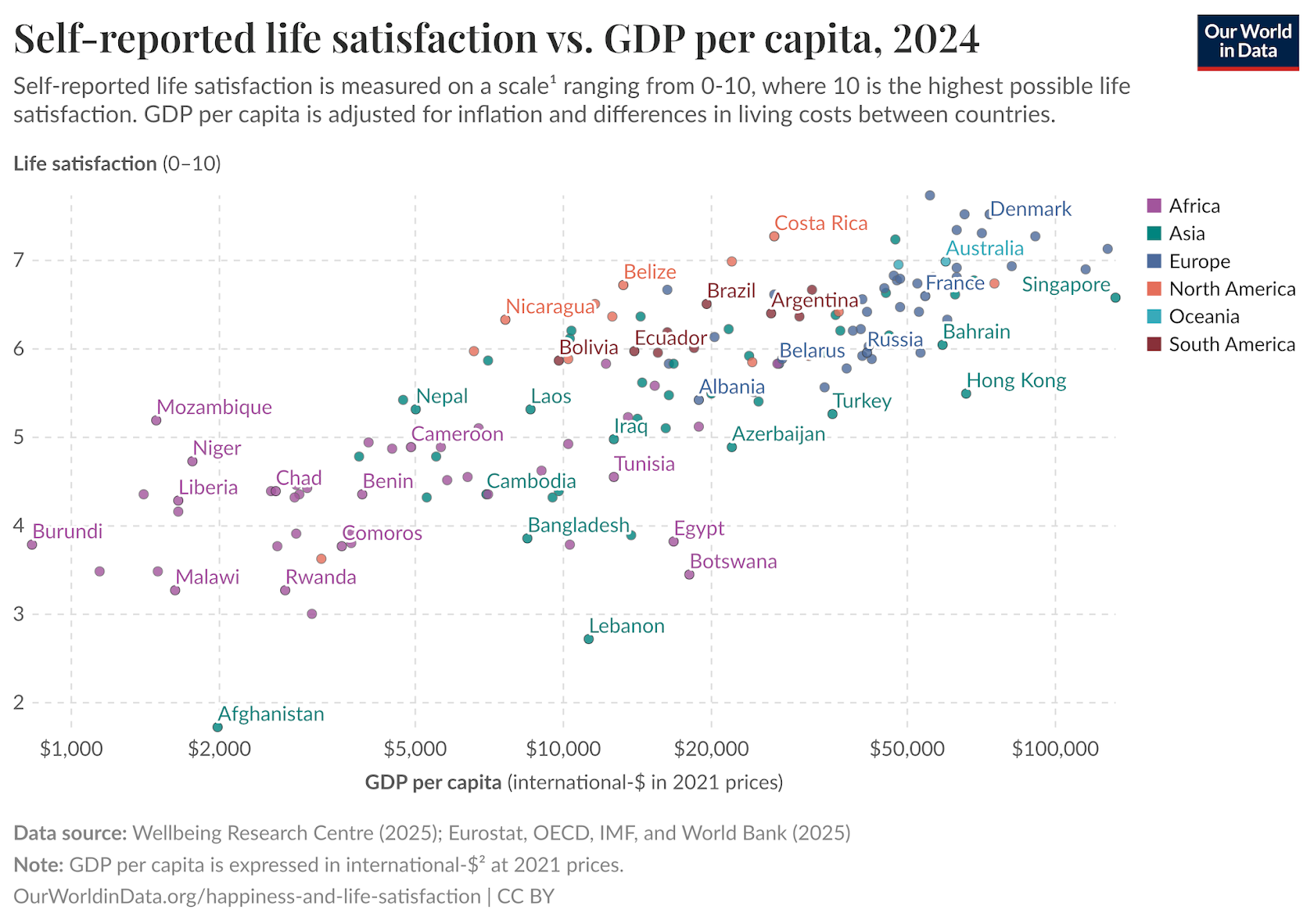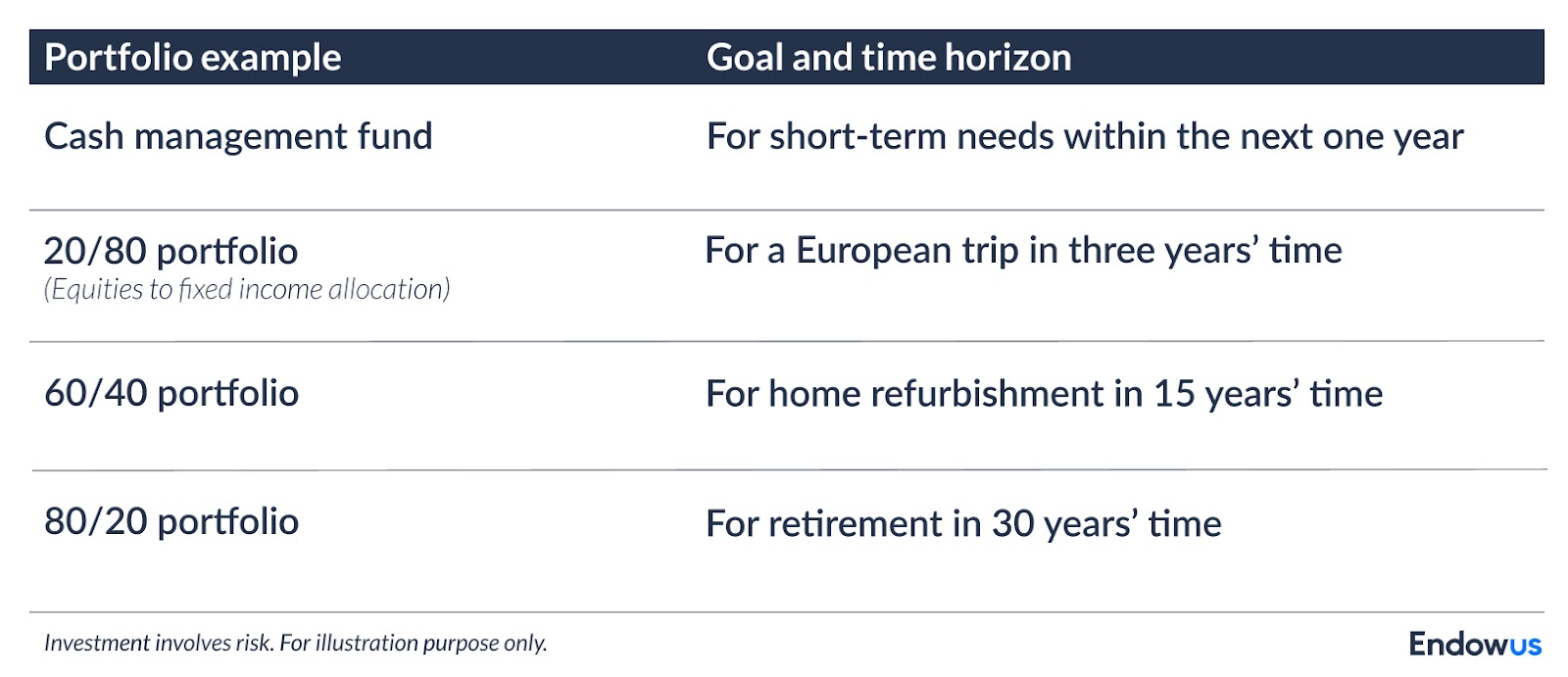- Even high earners can experience financial insecurity, driven by social comparison, lifestyle creep, and concerns over future costs. This is particularly pronounced in cities like Hong Kong, which grapples with one of the world's most significant wealth gaps.
- Researh shows that whether money leads to well-being depends on your view of it—whether you see it as a positive force for security, meaning, and freedom, or merely as a scorecard to measure success and self-worth.
- Wnat to know the secret to building wealth? Find out how breaking down the goal can boost your odds of success. Discover how Endowus can guide you as a truly independent financial advisor, backed by our evidence-based scientific investment framework.
There is the old saying, "money can't buy happiness", which has been debated countless times. However, we can acknowledge that chasing riches doesn’t really ever go away—it was imbued in many of us as children when we first made our “I want to be rich” dream.
Life can inadvertently become a hamster wheel if we are not mindful about what we wish for. Something as generic as aspiring to get rich can become an endless pursuit of more, always setting the bar higher when we use others’ wealth as yardsticks.
At the same time, wealth also provides security, access to healthcare and resources, among other things that point us in the direction of happiness—provided that we know what makes us happy. Which is why before we try to find out how to get rich, it’s more important to ask: why do you want to get rich?
Money does buy happiness, but how much?
An earlier study by Daniel Kahneman and Nobel Prize-winner Angus Deaton, published in 2010, suggested that emotional well-being plateaus at an annual income of US$75,000. However, a senior fellow at the University of Pennsylvania, Matt Killingsworth, sought to challenge that.
In a 2021 research paper on well-being and income, the study found no evidence of an income plateau. Instead, both day-to-day and overall life satisfaction continued to increase linearly with income, well beyond US$75,000. This confirms what many of us intuitively feel: having more money does help reduce stress and open up more choices, which in turn improves our well-being.
But there’s another interesting insight from the research: your view of money influences the magnitude of its effect on your happiness.
The study found that the association between income and well-being was four times stronger for people who rated money as very important. More telling, however, was this: equating money with success was associated with lower experienced well-being on average.
The lesson is profound. If you view money as a tool—a resource to build a life of security, meaning, and freedom—it can be a powerful positive force. But if you see money as a scorecard—the primary measure of your success and self-worth—it can become a source of perpetual anxiety and dissatisfaction.
But, even high earners don't feel rich
Killingsworth also found that over a quarter of individuals in the US with household incomes between US$200,000 and US$300,000 reported being "not very satisfied" or "not at all satisfied" with their financial situation.
This is not just happening in the US. Data from Our World in Data reveals that Hong Kong residents report the lowest levels of life satisfaction despite having a similar income range.

If you livein Singapore, you might also have encountered HENRYs—acronym for “high earner, not yet rich”—on Singapore’s Reddit thread (or you might even be one yourself).
It can be said that being rich is more than just numbers, but also a matter of perception, and the risk of having “get rich” as a goal is that you might never actually feel rich. We can explain it in a few ways:
Using other people’s wealth as a benchmark
Comparison is a thief of joy. When you were a fresh graduate, a HK$20,000 monthly salary might have seemed like a lot. But as you advance and meet more people who appear to have achieved way more than you, suddenly your own achievements feel diminished.
Moving goalposts means that no matter how much money you accumulate, there’s always a new, higher level of wealth to aspire to, making satisfaction a perpetually elusive target.
Your goals are not yours
In the same vein, we often let others around us define our goals. Expectations from parents, friends or colleagues are subconsciously internalised that it is hard to tell if becoming rich is a goal that truly belongs to you.
More often than not, people want to become rich not because they really want to be rich, but because money is a means to something they value—this is what you need to explore at depth and be clear about.
Having a scarcity mindset
Even with a healthy bank balance, worries about the rising cost of living, providing for ageing parents, funding a child's university education, and the ever-present risk of job displacement in a competitive economy can make even a six-figure salary feel inadequate for building a secure future.
While it is good to build a safety net, having a scarcity mindset could lead to an endless pursuit without ever feeling the satisfaction of reaching your goals.
TLDR: How to attain true wealth in Hong Kong
True wealth is not just a number, but an internal state of security and contentment. The real way to attain true wealth is to stop chasing someone else's definition of it and to start architecting your own.
- Be clear about the why, not just how: What do you want money to do for you?
- Break down “getting rich” into concrete goals: Instead of an arbitrary number, create a roadmap of financial goals you want to achieve. This can be calculated based on life stage, such as home ownership, having children and retirement.
- Set out realistic steps to reach your financial goals: There are thousands of ways to get rich—frugal living, side hustles, and even the lottery gives you a chance to get rich—but what are methods that you can stick with for the long run, and give you the best chance of success?
- Set boundaries: Take care of your physical and mental well-being as you pursue your financial goals. Also, it is natural for goals to evolve as you age, but be mindful not to fall into the “more is more” trap.
How Endowus can guide you on your wealth journey
When your money is working towards a future you have personally designed, you can move from a mindset of anxiety and comparison to one of clarity, confidence, and control.
At Endowus, we espouse a goal-based approach to investing, starting with defining your goals and determining the appropriate asset allocation and amount of risk to bring you to these goals. Referring to the sample financial plan below, the goals are clearly laid out over a timeline and bucketed into separate investment portfolios.

We offer a range of investment solutions for every goal—from CashUp Portfolios for short-term cash management, to our Flagship Portfolios for long-term wealth building. These portfolios are customisable to your risk tolerance and financial objectives.
And if you would like guidance on your wealth planning journey, feel free to reach out to our SFC-licensed client advisors.
Further reads on goals and financial planning:
- Is the ‘$100k by 30’ goal still relevant?
- FIRE: Financial independence, retire early in Hong Kong
- Financial planning through life stages
<divider><divider>
Risk Warnings
Investment involves risk. Past performance is not an indicator nor a guarantee of future performance. The value of investments and the income from them can go down as well as up, and you may not get the full amount you invested. Rates of exchange may cause the value of investments to go up or down.
This article is not intended to be relied upon as a forecast or research or investment advice, and should not form the basis of any investment or other decisions. The information contained herein is not intended, and should not be construed, as any legal, tax, regulatory, accounting or financial advice. If you would like investment, accounting, tax or legal advice, you should consult with your own professional advisors regarding your individual circumstances and needs.
The information in this article may not be suitable for all investors. You are responsible for any action that you take or decision that you make in reliance on any content in this article, and you agree that Endowus HK Limited (“Endowus”) is not liable under any circumstances.
No invitation or solicitation
Neither the information, nor any opinion, contained in this article constitutes a recommendation, offer or solicitation by Endowus or its affiliates to you to buy or sell any securities, collective investment schemes or other financial instruments or services, nor shall any such security, collective investment scheme, or other financial instruments or services be offered or sold to any person in any jurisdiction in which such offer, solicitation, purchase, or sale would be unlawful under the securities laws of such jurisdiction.
This is not intended to be an invitation or offer made to the public to subscribe for any financial product or to enter into any transaction.
Accuracy of Information
Whilst Endowus has made reasonable efforts to provide accurate and timely information, there may be inadvertent delays, omissions, technical or factual inaccuracies or errors in any such information. Endowus does not warrant or represent that the information in this article is correct, accurate or reliable.
Opinions
Any opinion or estimate above is made on a general basis and none of Endowus, nor any of its affiliates, representatives or agents have given any consideration to nor have made any investigation of the objective, financial situation or particular need of any user, reader, any specific person or group of persons. Opinions expressed herein are subject to change without notice.
Any forward-looking statements, prediction, projection or forecast on the economy, stock market, bond market or economic trends of the markets contained in this article are subject to market influences and contingent upon matters outside the control of Endowus and therefore may not be realised in the future.
In presenting the information above, none of Endowus, its affiliates, directors, employees, representatives or agents have given any consideration to, nor have made any investigation of the objective, financial situation or particular need of any user, reader, any specific person or group of persons. Therefore, no representation is made as to the completeness and adequacy of the information to make an informed decision. You should carefully consider whether any investment views and products/ services are appropriate in view of your investment experience, objectives, financial resources and relevant circumstances.
This article has not been reviewed by the Securities and Futures Commission of Hong Kong.





.jpg)


.png)


